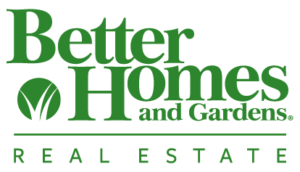There’s nothing better than knowing exactly what you’re going to do to tackle your real estate business goals ahead of time for the upcoming year. The industry can be unpredictable, but with a high quality, meticulous business plan, you can be ready for anything, and succeed, regardless of what the real estate market throws at you.
Creating the ultimate real estate business plan takes time; it’s the information you include within your business plan that can mean the difference between a mediocre year and a successful one. A real estate business plan is essentially a detailed, comprehensive guide to achieving your goals. While you already know that you want to increase your sales and generate more leads, a business plan will also help you evaluate your tactics and eliminate the ones that won’t provide the results you’re looking to achieve.
Furthermore, putting your goals on paper and the tactics you intend to execute to achieve those goals will keep you committed.
Everything from your funding, marketing tools, real estate market trends, and basically anything that pertains to your business and industry should be included in your business plan. However, it’s imperative to write a business plan that is realistic and achievable. It should consist of reasonable goals and viable options to reach them. Fortunately, if you write a detailed business plan, you will quickly see where you’ve implemented wishful thinking instead of realistic intentions.
With these business plan tips, you’re well on your way to achieving success this next year and beyond.
Start with the Financial Section
When you’re unaware of your state of finances, it’s impossible to create a realistic real estate marketing plan. After all, you have to know what funds are available so you can then delegate them to sections throughout your business plan. So, always start with finances. Analyze, track, and implement any financial information that pertains to your business so you can estimate your income, goals, and expenses throughout the year ahead. Here are some things to include when writing the financial section of your business plan:
Expenses
Start by determining what your expenses will be for the next year so you can track them accordingly. Some of your real estate expenses include training and renewal fees, personal expenses such as Internet and cell phone bills, and business expenses such as broker fees, marketing, advertising, etc.
Income
Estimating your income can be a difficult part of writing a business plan. In order to do this as accurately as possible, it’s crucial to analyze your income from the previous years. You also need to take into account basic figures from the real estate market, such as the average sale price for homes in your specific area. Then, you can more precisely predict how much money you will make in the first year, and how much you expect that to grow. Research is vital to ensure your estimates are driven by facts, and not wishful thinking.
Transactions
In order to meet your income goals, you need to make sales. In order to make sales, you need a detailed plan on how you’re going to obtain leads. Analyze the information listed above, determine how many leads you need, and then you can head to the next step within your business plan – your marketing strategy.
Define Your Marketing Strategy
Before you can determine your marketing strategy, you need to clearly define your target market. Think about the niche areas in which you serve, whether it’s starter homes, beachfront homes, retirement homes, etc. By determining your focus, you can then decide where your marketing strategy should be concentrated.
For example, if you’re targeting starter family homes, your target audience will be young families, likely headed by millennials. As such, your marketing strategies should consist of more modern approaches, such as social media marketing. Here are some things to consider:
Ideal Customers
Determine the key characteristics of your ideal customers. Think about the kind of real estate services they would be interested in, and how you can provide for their needs and wants.
Success within the Niche
The niche area of your real estate services could play a huge role in the viability of your business plan. After all, if you’re targeting starter family homes in an area that is predominantly retirees, you have a bit of extra work to do. Assess your niche, review available market statistics, and research how competitive it is within your area. You can then define a marketing strategy that coincides with the challenges or strengths of your market.
Define Your Strengths and Opportunities
Define your unique brokerage strengths, and tailor your marketing strategy around that. If you have a lot of success with traditional print marketing, infuse your business plan with similar tactics. If you have a strong online presence and know how to dominate social media, use this strength to your advantage.
You also want to discover your weaknesses, so you know the areas to strengthen if they’re valuable. For example, if you don’t have social media accounts, plan to take a social media marketing class.
Highlight Your Goals
As you establish your marketing tactics, determine why you’re going to use them. Think about your personal and career goals and add them into your real estate business plan. Whether you want to reach 5,000 followers on social media, obtain 3 new leads monthly through your print marketing campaign, or something else – put it in your plan so you can then put it into action.
Create Action Plans
The last part of writing a business plan is to create action plans. Now that you have all of the crucial information, you have to decide on how you’re going to turn it into action. For example, if you know your target audience is young and savvy, and you’ve determined you want to use technology to reach them, you need to then design a step-by-step plan to do just that in 2017. Here are some things to consider:
Promotion
Money is going to play a huge component in reaching your goals. Valuable information can be found in the financial section of your business plan and should be used to design a detailed and realistic action plan. For example, you can allot post-expense budgets to key parts of your business plan that will help you reach your goals, such as marketing.
Detailed Steps
It’s important to be as precise as possible. Once you’ve established the tactics you will be implementing, you can then break them down even further. For example, decide on the types of social media marketing you’ll invest in, as well as the specific kinds of print marketing materials.
Assign Goals to Each Step
It’s easy to say that all of the plans implemented will contribute to all of your goals. However, you want to try to assign each step to a corresponding goal. For example, your social media marketing may have a goal of obtaining 200 new followers each month, whereas your print marketing may have a goal of generating 3 new leads each month. The more specific you can be, the better your real estate business plan.
A Short-Term and Long-Term Plan
Your real estate business plan should outline your strategies for the next couple of years. It’s crucial to implement valuable information that pertains to your current business and use that to estimate and implement a plan for the future. As such, it’s easier to start with your short-term plan. Determine your current goals and the means, tools and tactics you have to reach them. Then, use this information to predict how your business will succeed over the next couple of years.
For example, if your business analytics show a revenue increase of $10,000 each year, you can predict your future income for several years. More importantly, you can detail a long-term plan with how you will invest more funds into your business each year to achieve your long-term goals.
This year, your goal might be to generate five new leads each month. In year five, your goal may be to hire a closing assistant to help manage your abundance of leads and clients. Your business plan needs to include how you will gain those five new leads each month, and how that will ultimately contribute to the means and reasoning you’ll have to hire a closing assistant in the future.
The last step is to revise your real estate business plan as needed. The analytics, trends, and tactics in your short-term plan will likely change over time. So evaluate your business plan periodically; discover what is and isn’t working to your benefit, and revise accordingly.









